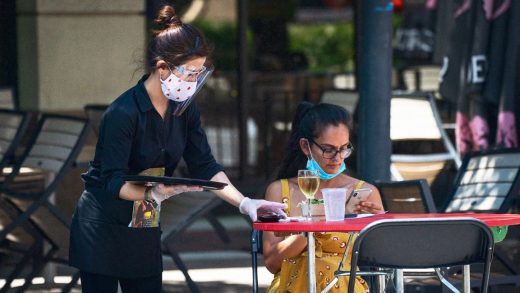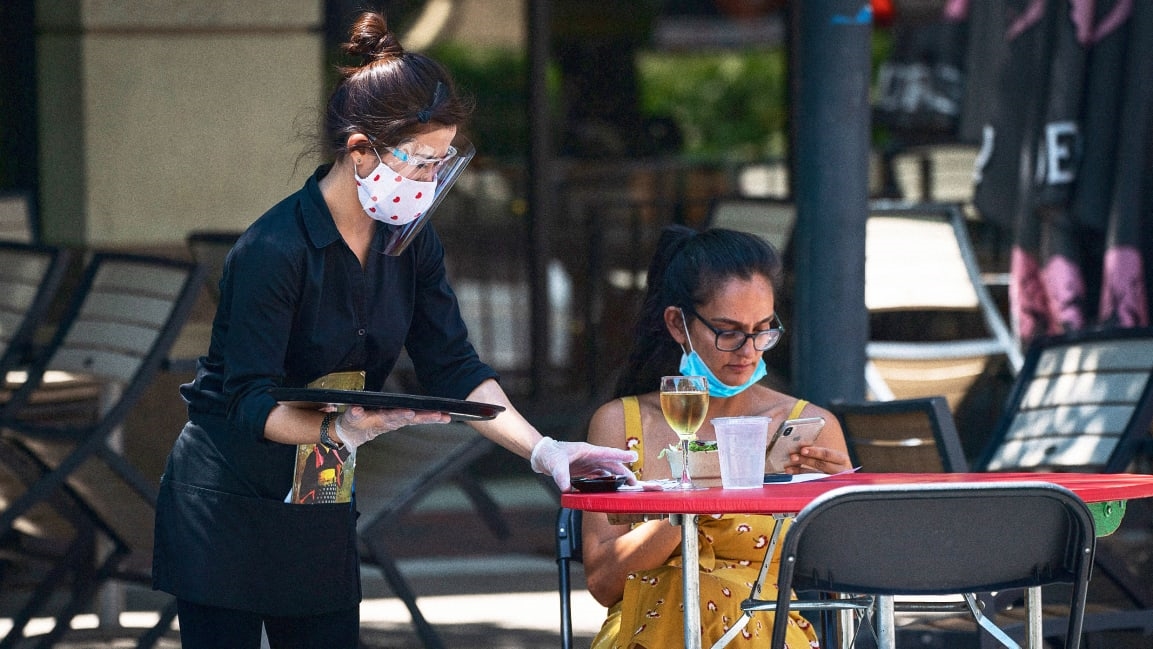David Chang and other chefs say now is the time to fix the restaurant industry’s long-standing inequities
If restaurants have struggled during the pandemic, restaurant workers are struggling even more, in part because their economic situation was already precarious before the outbreak. The federal subminimum wage for tipped workers is still the same as it was nearly 30 years ago: $2.13 an hour. Now, as many restaurants reopen and workers return, some restaurant owners are arguing that the industry needs to fundamentally change.
In New York, chefs including David Chang and Tom Colicchio are asking the state to adopt a “Safe and Just Reopening” plan that eliminates the subminimum wage (at $11.80 an hour, New York’s is higher than the federal version, but still below the state’s $15-an-hour minimum wage) and allows servers to share tips with back-of-house and kitchen staff. The plan also calls for restaurants to be able to charge a 5% “safe reopening” fee and seeks payroll tax relief for restaurants.
Many restaurant workers who lost work as the outbreak grew are in crisis now, says Saru Jayaraman, the president of One Fair Wage, an organization that aims to lift tipped workers out of poverty. As the COVID-19 outbreak grew, the nonprofit learned about the details of personal struggles as some workers applied for its emergency coronavirus relief fund. “Three months ago, workers were writing in, saying, I really need this money to get groceries for my kids,” she says. “Now, three months later, they’re telling us, ‘I am at the breaking point. I think I’m going to have to steal food for my children. I don’t have money for gas to get to the food bank.’”
Some workers are facing eviction. Others can’t pay their utility bills. “I just don’t think that people understand the severity of the crisis,” Jayaraman says. Now, as many are being asked to go back to work, they face a different problem: Tips are way down because fewer people are eating out. “We cannot ask the workers to risk their lives to go back to a very risky situation for a subminimum wage,” she says. “Not only can we not ask it—many workers are just refusing to do it, which is resulting in a lot of employers just going ahead and paying the minimum wage because they can’t get their employees to come back otherwise. So even at a market level, it’s happening, and that’s why legislators need to step in right now rather than putting all of these workers at such severe risk for a subminimum wage.”
The subminimum wage is a legacy of slavery, as a recent report from One Fair Wage explains. At the time of Emancipation, restaurant owners turned to newly freed slaves for cheap labor. Tipping at the time was common in Europe, but only as a supplement to full wages; in the U.S., new laws changed the practice so workers would have to rely primarily on tips. Today, in New York, tipped workers are still more than twice as likely to live below the poverty line than other workers in the state, and nearly twice as likely to live on food stamps. Tipped workers who are women and people of color are even more likely to live in poverty.
“The restaurant industry needs immediate relief, and needs to address long-standing racial inequities in our industry at the same time,” 50 restaurant owners and 200 restaurant workers wrote in a letter to state legislators in New York. (It’s worth noting that some restaurant workers have resisted changes to the status quo in the past, fearing that they’ll lose tips.) Jayaraman says that momentum is building in many of the 42 other states that also still have a subminimum wage. “Some people are calling it the great awakening,” she says. “We’ve been counting, and I think we’ve been approached by close to 200 restaurants nationwide wanting to transition to full livable minimum wage, either because of the pandemic, or after George Floyd’s murder, a lot of restaurants reached out to think about how to move away from this legacy of slavery.” Joe Biden has also endorsed the idea of one fair wage for all workers. “I think, finally, people are seeing that we can’t go forward with a system that didn’t work,” Jayaraman says.
(22)



